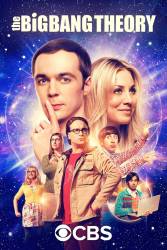
The Big Bang Theory (2007)
0 plot holes in season 5 - chronological order
Starring: Kaley Cuoco, Johnny Galecki, Melissa Rauch, Simon Helberg, Jim Parsons, Kunal Nayyar
Genres: Comedy
I'm afraid there's nothing listed for this season. Add something here!
The Pork Chop Indeterminacy - S1-E15
Character mistake: In his conversation with Missy Sheldon makes it clear that his superior intelligence is a result of a random, mutated gene. Since Missy isn't similarly intelligent she obviously isn't carrying this mutated gene (which would be a billion to one shot anyway) so her offspring wouldn't inherit it. Sheldon would know this - his offspring would carry the mutated gene for superior intelligence, Missy's would not. Anyone knowing enough about genetics to use the term 'randomly mutated gene' understands enough to know that the mutated gene would only be expressed in a direct line from the carrier - Sheldon. Also bear in mind he has a model of the DNA molecule in his living room - it is obviously an interest.
The Big Bran Hypothesis - S1-E2
Sheldon: Oh Gravity, thou art a heartless bitch.
The Fish Guts Displacement - S6-E10
Trivia: In the beginning, after talking about the Spider-Man theme, Sheldon says it's right up there after Inspector Gadget and Teenage Mutant Ninja Turtles (to which the gang chimes in "heroes in a half shell, turtle power"). Chuck Lorre, the show's creator, wrote the original TMNT theme song that they are referring to.
The Euclid Alternative - S2-E5
Question: Though it comes up in other episodes as well, this one is focused on Sheldon needing a ride everywhere he goes because he can't drive, not to mention his not being welcome on the bus. Of course, this story element would be nonexistent if there was a simple answer, but it does beg the question: Does Pasadena not have taxicabs?
Join the mailing list
Separate from membership, this is to get updates about mistakes in recent releases. Addresses are not passed on to any third party, and are used solely for direct communication from this site. You can unsubscribe at any time.
Check out the mistake & trivia books, on Kindle and in paperback.




Suggested correction: Genes can be dormant. Which allows them to skip generations. Therefor Missy's children could actually get the "mutated" gene. This is especially true since Sheldon and Missy are twins. Also, since the episode is about who out of Leonard, Howard or Raj, Sheldon would allow to "mate" with his sister, there is the added "insurance" of getting any smart genes from any of the 3 Lothario's mentioned above.
If you are going to try to argue with a geneticist about genetics, please use the correct terms. Sheldon is not referring to a recessive gene - there is no such thing as a dormant gene - he is speaking of a randomly mutated gene. Those are the words he used. If he had inherited a homozygous recessive karotype - one recessive gene from each of his parents - then somewhere in his family tree there would similarly gifted people, in which case he would use the correct term - a recessive gene. If Missy is a heterozygotic dominant karotype possessing the recessive gene for super-genius and the dominant for ordinary intelligence then mating her with Howard, Raj or Leonard would be a waste of time as their dominant genius gene would prevent the recessive super-genius gene from being expressed in the phenotype of the resulting child. The child would be highly intelligent but not on Sheldon's standards. It doesn't matter if Sheldon does not know any of this as he refers several times to a randomly mutated gene, not a recessive one. Missy does not carry the super-genius gene. The posting is correct.
Sheldon is prone to magical thinking when necessary to preserve his obsessive need to control his environment. He may have simply ignored the flaw in his reasoning, as even the most intelligent humans do when venturing outside their ares of expertise. He may be interested in the science of genetics, but his Ph.D. in physics doesn't qualify him as an expert in that field.